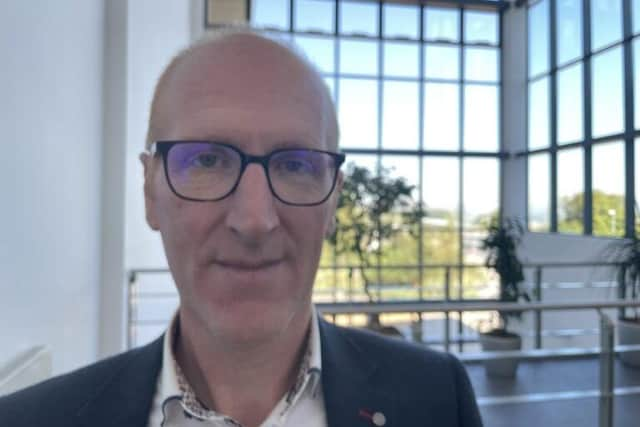Gas specialist recalls ‘emotionally taxing’ week investigating Heysham explosion which killed two-year-old George Hinds
and live on Freeview channel 276
Steve Critchlow, principal registered gas engineer at the Health and Safety Executive (HSE), was called to Mallowdale Avenue following the blast in May 2021.
He stayed at the site for a week as part of his investigation for the HSE with his report later supporting the conviction of Darren Greenham, from Ambleside Avenue in Lancaster, who was jailed for 15 years for manslaughter, damaging a gas meter and theft of gas.
Advertisement
Hide AdAdvertisement
Hide Ad“It was a very emotionally taxing and high profile case,” Steve said. “You can have a really massive incident that takes a lot of work.


"The explosion was caused by a next-door neighbour tampering with their gas installation and my work involved attending the scene, doing some laboratory testing and producing a report.”
Steve made the comments during Gas Safety Week, which this year is September 11 to 17.
The 50-year-old from Buxton has also investigated fatal gas explosions in the Cairngorms in 2015 and in Oldham in 2011.
Advertisement
Hide AdAdvertisement
Hide AdHis role also requires him to investigate carbon monoxide poisonings, including a fatality in Ipswich in 2012.


Steve said: “The family of the deceased wrote to me afterwards and sent me a lovely card with a handwritten message just saying how much they appreciated what I had done and they could see I did my very best to explain to them what had happened.
“And I kept that card because that is kind of the motivation every time, why I jump up out of my seat and drive around the country to attend these tragic incidents.”
Alongside his investigation work, Steve’s role at the HSE also requires him to appear in court as an expert evidence provider for gas-related prosecutions.
Advertisement
Hide AdAdvertisement
Hide AdIn July 2023, his incident investigation work saw him named as Engineer of the Year at the National Gas Industry Awards.
A gas inspector with 20 years’ experience with the HSE, Steve is also responsible for advising fellow HSE inspectors and employers in the gas industry.
All too often, he has seen what can happen when employers do not adhere to gas safety regulations, which is why he believes it so important businesses safely maintain their gas installations.
“It is very tempting for businesses to try and save money, to try to save time by not looking after their gas installations,” he said.
Advertisement
Hide AdAdvertisement
Hide Ad“It’s a highly regulated industry and the reason for that is because we know it can go wrong with fires and explosions and there is also a risk of carbon monoxide poisoning if appliances are not maintained regularly.
“Businesses using gas have a duty to maintain their gas installations and, if they don’t, then it is imperative that the HSE takes action against them.
"That sends the clear message that we have regulations, guidance and standards in place that you have to follow to ensure safety.”